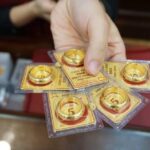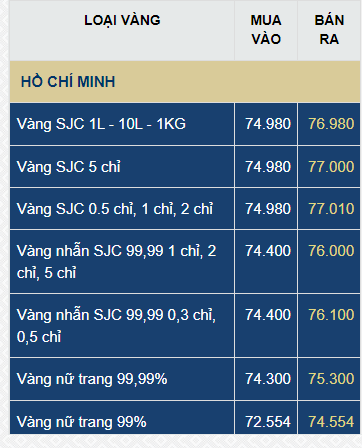
Mr. Dao Xuan Tuan – Director of the State Bank of Vietnam’s Foreign Exchange Management Department
Sharing insights on the new orientations and amendments in the Draft Decree amending and supplementing a number of articles of Decree 24/2012/ND-CP, Mr. Dao Xuan Tuan – Director of the State Bank of Vietnam’s Foreign Exchange Management Department, stated that the State Bank has finalized the draft decree with a market-oriented approach, implementing a controlled and gradual process.
Regarding the management of the gold bar market, the draft decree proposes regulations to eliminate state monopoly in gold bar production, as well as the export and import of gold materials. This is achieved by allowing the State Bank to issue licenses to qualified enterprises and banks to produce gold bars, import gold materials for gold bar production, and meet the demands for gold materials in the art gold industry.
Mr. Tuan explained that based on macroeconomic and monetary developments, monetary policy objectives, and gold market conditions in each period, the State Bank will determine import quotas for qualified enterprises and banks (collectively referred to as enterprises) to import gold materials. This approach ensures the elimination of state monopoly while maintaining tight control over the gold bar market in both production and gold material imports.
The draft decree also includes mechanisms for state supervision and control, requiring enterprises to publish standards, volume, and gold content of their products. It holds enterprises accountable for adhering to legal regulations regarding gold content and volume standards in their products. Enterprises are also required to establish internal regulations for buying and selling gold bars with customers, develop information systems to ensure accurate and comprehensive storage of gold bar transaction data, and provide necessary information to authorized agencies as per legal regulations.
With the new mechanism introduced in the draft decree amending Decree 24, the market will witness additional gold brands from enterprises and banks licensed by the State Bank to produce gold bars. This will offer consumers more choices, foster market competition, and minimize price discrepancies among gold products and brands. Furthermore, the draft decree amends regulations regarding account payments and the use of electronic invoices for gold transactions, enhancing transparency in the gold bar market.
The current Decree 24 stipulates that gold art jewelry businesses meeting the requirements are not required to obtain a license from the State Bank. The State Bank only issues certificates of eligibility to gold art jewelry manufacturers. In practice, however, the State Bank has only granted licenses to enterprises importing gold materials for the production of exported gold art jewelry due to their foreign currency earnings. Other gold art jewelry manufacturers source their gold from domestic supplies. During the evaluation and amendment process of Decree 24, many enterprises proposed that the State Bank should grant licenses for importing gold materials to support the development of the gold art jewelry industry.
The State Bank acknowledged that there are currently over 6,000 gold art jewelry businesses, most of which have small capital scales. To ensure that enterprises and credit institutions have the financial capacity to import gold materials, the draft decree proposes that the State Bank grant import licenses to enterprises and credit institutions (those eligible for gold bar production) to sell gold materials to gold art jewelry manufacturers. This regulation increases the supply of gold materials while maintaining state control over the gold art jewelry market. The draft decree also stipulates that licensed enterprises and credit institutions must establish internal regulations for importing and selling gold materials, ensuring transparency and building information systems to store accurate transaction data. These enterprises must also connect and provide transaction information to authorized agencies as per legal regulations.
According to Mr. Tuan, the draft decree amending Decree 24 has also modified and supplemented the responsibilities of state agencies, ministries, and local governments in managing the gold market. It proposes that the State Bank collaborate with relevant ministries to establish an information system, build and store data on the gold market, and connect and provide information to relevant agencies to enhance transparency and support effective management.
Moving forward, the State Bank will continue to implement proactive, flexible, and timely monetary policies to contribute to macroeconomic stability and confidence in the Vietnamese currency. These are considered fundamental and long-term solutions to transform resources from gold into economic development. Additionally, the State Bank will promptly research and refer to international experiences to propose the establishment of a national gold exchange or allow gold trading on commodity exchanges. Moreover, relevant agencies and ministries are encouraged to explore alternative investment channels to attract gold resources from the people for investment in the economy and to study appropriate tax policies for gold transactions to enhance market transparency and serve the objectives of state agencies in gold market management.
The Golden Dilemma: Navigating the Peak
Amidst soaring gold prices, with gold bars surpassing 83 million VND per tael, customers are facing challenges in purchasing SJC gold online from commercial banks.
Wrestling with Wealth
At a recent livestream event hosted by Vneconomy/Vietnam Economic Times, local analysts offered their insights into Vietnam’s gold market and proposed fundamental, long-term solutions for its effective management. With their expert knowledge, they delved into the intricacies of this valuable commodity and presented ideas for sustainable strategies.





















